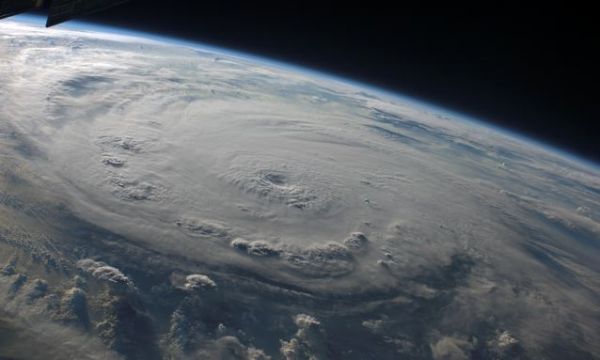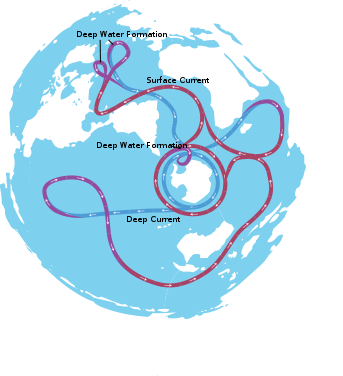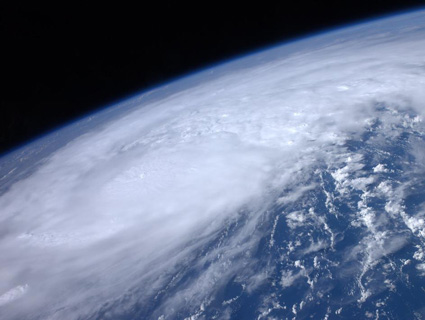 Hurricane Felix over the coast of eastern Honduras. Credit: NASA via Universe Today.
Hurricane Felix over the coast of eastern Honduras. Credit: NASA via Universe Today.
1. Tropical cyclones are important rainmakers, providing 25 percent or more of available rainfall to places like Japan, India, and Southeast Asia—not to mention Texas, which desperately needs a dousing ASAP.
 In the course of a year, low latitudes gain more heat and high latitudes loose more heat. Tropical cyclones help transport heat from the equator towards the poles. Credit: NASA.
In the course of a year, low latitudes gain more heat and high latitudes loose more heat. Tropical cyclones help transport heat from the equator towards the poles. Credit: NASA.
2. Tropical cyclones help maintain the global heat balance by moving warm tropical air away from the equator and towards the poles. Without them, the tropics would get a lot hotter and the poles a lot colder… A typical tropical cyclone releases heat energy of about 50 to 200 exajoules a day. That’s equivalent to 70 times our worldwide energy consumption.
 Long Island, New York, with multiple barrier islands. Credit: NASA.
Long Island, New York, with multiple barrier islands. Credit: NASA.
3. Paradoxically, fragile barrier islands need hurricanes for their survival—especially now, when sea levels are rising. Although hurricanes erode beaches on the ocean side of barrier islands, they build up the back sides of the same islands by depositing new sediments via winds and waves. This dynamical process keeps barrier islands alive.
 Global thermohaline circulation, aka the ocean conveyor belt. Credit: Avsa via Wikimedia Commons.
Global thermohaline circulation, aka the ocean conveyor belt. Credit: Avsa via Wikimedia Commons.
4. Tropical cyclones stir up the ocean and drive the process of upwelling, thus playing a part in the thermohaline circulation—another important transport mechanism distributing heat between the equator and the poles and keeping the earth’s temperature in better balance.
 Credit: Bruno de Giusti via Wikimedia Commons.
Credit: Bruno de Giusti via Wikimedia Commons.
5. By stirring the ocean, tropical cyclones also cycle nutrients from the seafloor to the surface, boosting ocean productivity and setting the stage for blooms of marine life.









